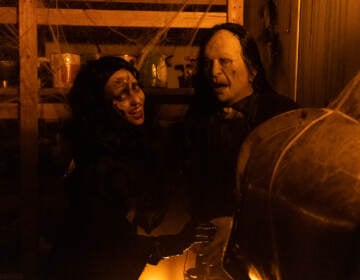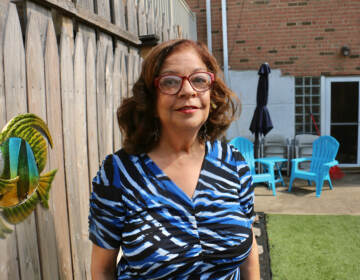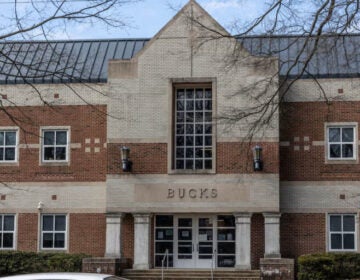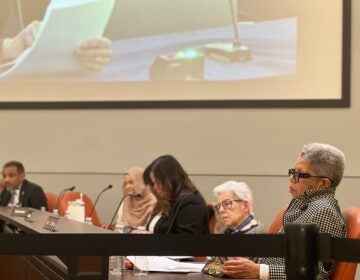Philly teens are sharing their climate change stories
High schoolers from around the city are talking about hot classrooms, devastating storms, and the convergence of climate change and inequity.
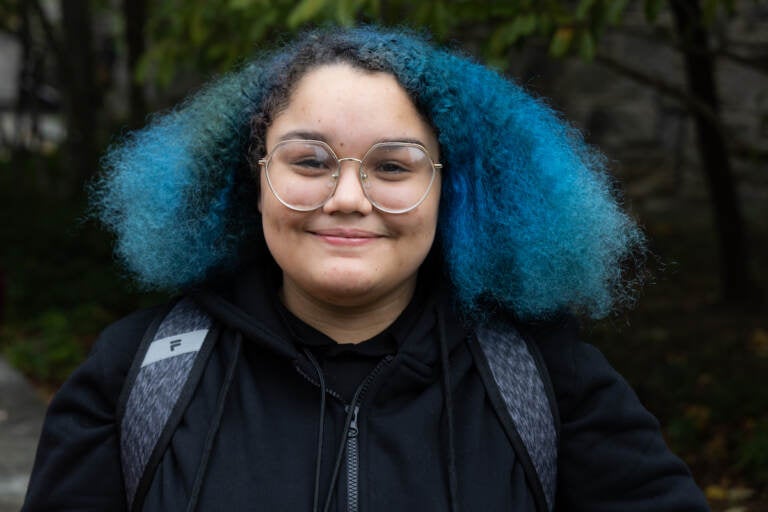
Evenisse Molina is a 10th grader at Kensington CAPA. (Kimberly Paynter/WHYY)
Philadelphia youth are thinking a lot about climate change.
Kids from eight high schools around the city gathered at the University of Pennsylvania Thursday to practice talking about their own experiences with impacts of climate change, and listening to each other.
“On a globally changing planet, every person has a climate story,” said Bethany Wiggin, who heads the Penn Program in Environmental Humanities. “Some of them are pretty dramatic, if you’re on the front lines of climate change. … But many climate stories, including many in Philadelphia, are a little more subtle.”
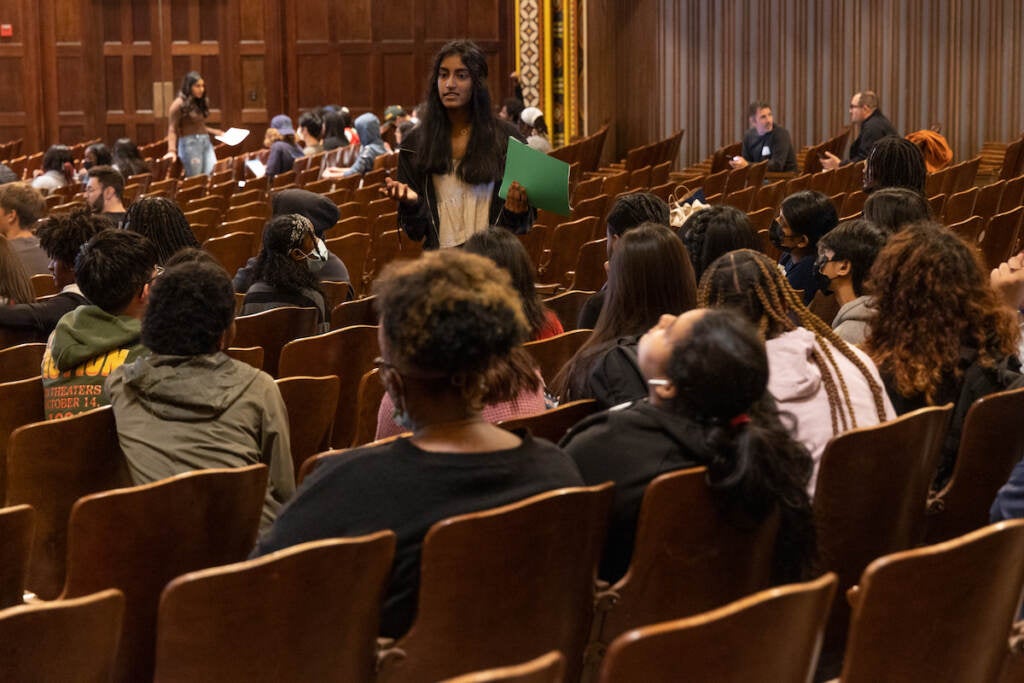
The event was part of Penn’s Climate Week and an ongoing research project to get people talking about climate change on a personal level, called My Climate Story.
Nine high school teachers in a range of disciplines — from biology to history — are partnering with the Penn Program in Environmental Humanities to develop climate change curriculum resources. Their students are also learning climate storytelling and reporting skills.
Here are a few of the students’ own stories, edited for length and clarity. It’s not clear whether all of the specific events they experienced were made worse by climate change — but scientists say global warming makes heat waves, heavy rain, and hurricanes more intense.
Evenisse Molina, Kensington Creative & Performing Arts High School
I grew up in Puerto Rico. … Puerto Rico was very important to me. … [But] with health issues, I had to switch here to Philadelphia. …
Two years ago, I went back. … All the cement houses were empty. The windows taken off. Nothing inside. … The terrible part was with the floods as well. Even the tiniest bit of rain would flood a whole entire area. …
With all the storms happening, they haven’t been able to have electricity. …
I’m worried. I am worried about the people who live there. I’m worried about my family. …
It was hard to deal with that information. The fact that I’m here in Philadelphia, … just knowing that only a few hours away while on a plane there is my hometown, my old life, and the people that I knew that are extremely struggling. Obviously there’s a lot of people who don’t want to leave, especially with the culture and how their families had to grow up there. … It’s an amazing place.
Aster Chau, Academy At Palumbo
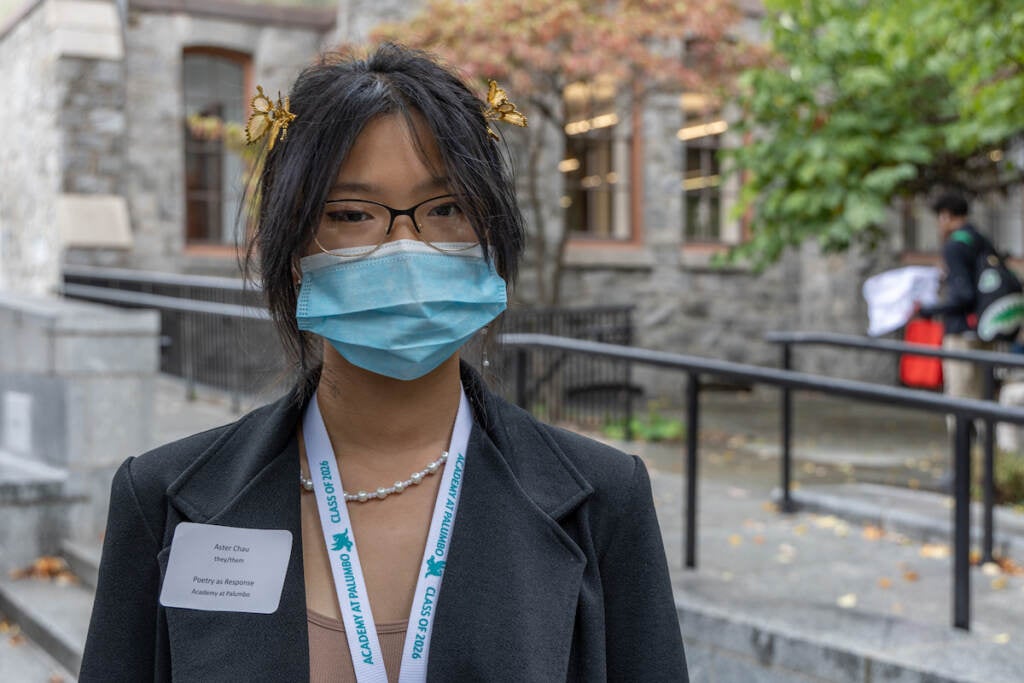
I wasn’t born in Philly, but when I came here I kind of realized things were a lot different from New York.
Like in New York, the pollution was absolutely horrendous. And when I came to Philly, I started school, and the first thing I noticed was how hot it was in the building. I remember sweating so badly.
I also realized how privileged Philadelphia was compared to other regions that I’ve heard over the news — hurricanes and just natural disasters in general — how bad it was for other regions. I’m not saying that Philadelphia isn’t affected by any of this, we get really bad stuff as well. But I feel like it isn’t talked about as much because it’s more subtle than in other regions. We’re not getting hit by hurricanes, but we are noticing, like, the extreme heat, heavy rains, and just weather’s all over the place here.
Bahiya Muhammad-Blount, Philadelphia High School for Girls
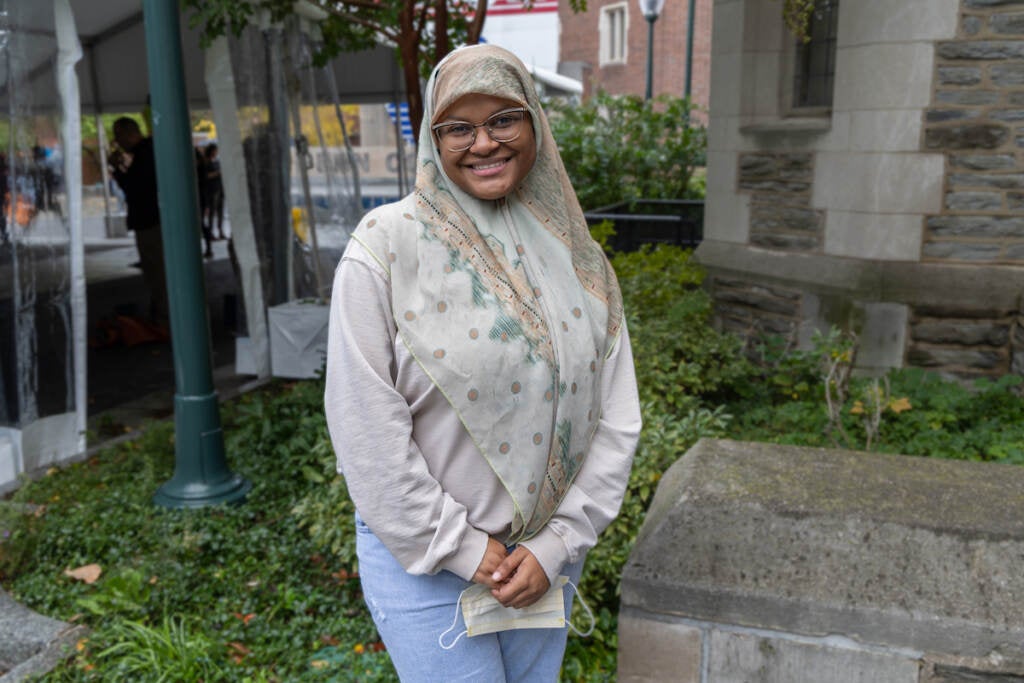
I was really little. It was during a hurricane. … I was in North Carolina with my two siblings and my grandparents. … They don’t have a basement, so we just went to the top floor. And I remember it was thunderstorms — lightning, thunder. A tree … behind the house fell over.
I just remember heavy rain and stuff. I remember being really scared, but my grandparents calmed me down. … All the electricity was off. We only had candles as a light. …
That was pretty scary and traumatic, and I don’t really like going down there for the summer anymore.
Ibraheem Chowdhury, Northeast High School
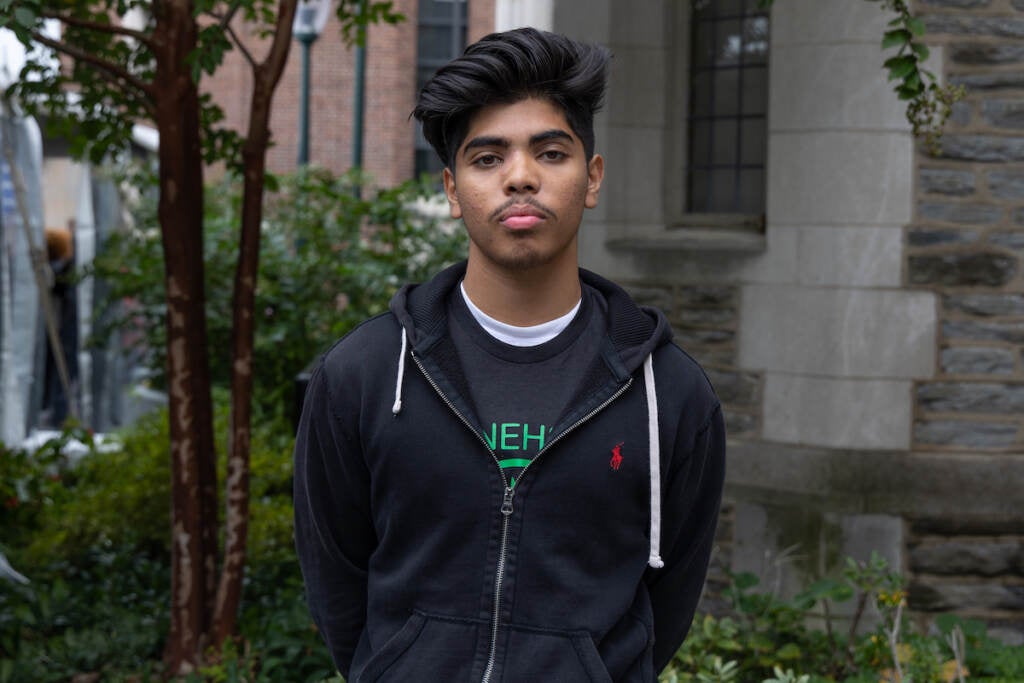
When I went to my country [Bangladesh] when I was younger, like every single night, the power used to go out, because there used to be floods every day, because it used to rain a lot.
When there was floods, the power used to go off. So we didn’t have A/C, nothing. We used to just be stuck in the heat. … It was, like, really humid and everything…
[In Philadelphia], I think it was last year, I noticed that there was no snow. During the winter, it was, like, kind of warm. It wasn’t as cold as it used to be. I [went] outside with my hoodie on — not a jacket.
Nyleema White-Bond, The U School

Personally, I’ve never experienced close climate change, but … climate change, pollution and gentrification are like a trio that affect us today.
A prime example, last year when we had [Hurricane Ida] and we had two-hour delays in school or couldn’t really attend school, had to go virtual, and how that was really affecting us.
And just seeing gentrification around the city of Philadelphia … If you see empty lots or buildings or even just bulldozed bricks and stuff around the city, some people try to turn them into something positive — like Iglesias Garden — they took lots, turned it into a community garden. But then you have other places where people’s houses are affected by it. Or there are abandoned houses that can be turned into something positive, yet they’re just left alone. And then we have homeless people on the streets, and there’s pollution. I think they all tie to each other.
Students will collect more stories from the community
Students in the program will interview people in their communities over the next few months about their climate change experiences. These stories will be published on the My Climate Story website, and students will present them at a climate storytelling festival in April. They also plan to present them to members of City Council, Penn’s Wiggin said.
“Council as a whole is very interested to hear not only the students’ stories, but also their recommendations about what they feel they need in order to be climate-ready,” Wiggin said.
At Kensington High School for the Creative and Performing Arts, Avery Stern, who teaches English, plans to work on climate journalism with her students.
“A lot of the kids have not had the opportunity to explore the way in which climate change has affected them, because they’re, like, so deeply in it,” she said. “What I would really love as far as storytelling is actually to work backwards to be like, these are the conditions that you’re living in — in what way has climate change contributed to the harder aspects of that lifestyle?”
Mariaeloisa Carambo teaches U.S. History and African American History at Paul Robeson High School, incorporating the history of the fossil fuel industry, Indigenous peoples’ history, food, and land rights into her classes. She hopes the climate stories her students collect by this spring will reflect their collective journey.
“What are some things we’re going to discover about ourselves, about our communities?” she said. “I think that’s what we’re going to share out.”
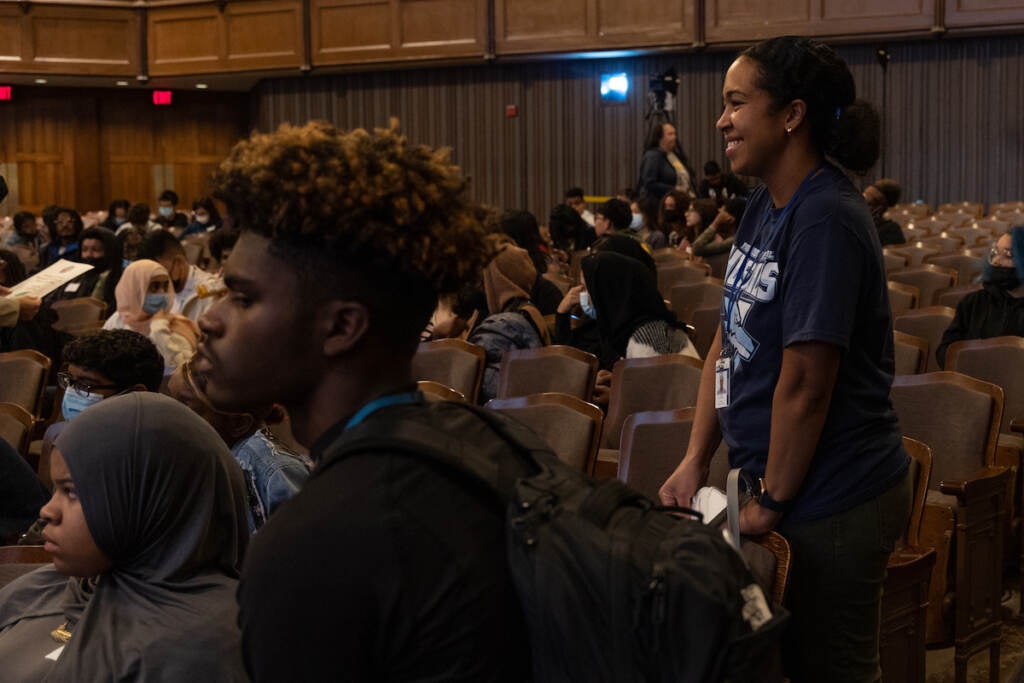

Subscribe to PlanPhilly
WHYY is your source for fact-based, in-depth journalism and information. As a nonprofit organization, we rely on financial support from readers like you. Please give today.




